16,600 kilometres away – but still running for Swiss parliament
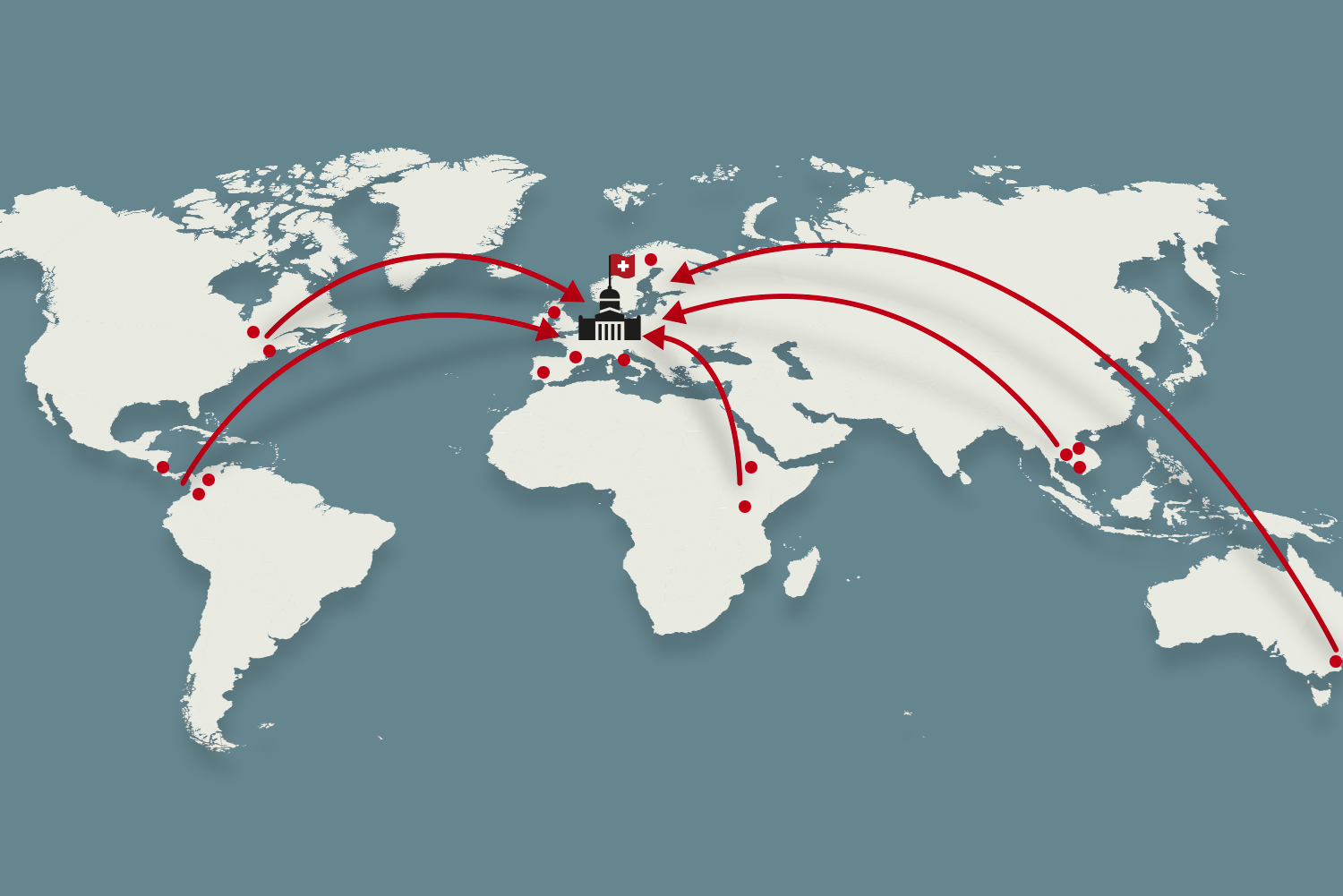
From the vegetable farmer in France to the Berlin-based writer to the diplomat in Australia – the 43 Swiss Abroad who are seeking election to the 200-member House of Representatives come from all walks of life. But who would have the longest trip to reach the Swiss parliament? And which canton is putting forward the most expatriate contenders? Here is an overview of the situation.
They are running for election in 11 cantons, they represent 11 different parties, they live in 18 different countries across six continents, and they are on average 52 years old. Of the over 5,900 candidates vying for a seat in Switzerland’s House of Representatives, 43 live abroad.
Three-quarters of them (32 candidates) are based in Europe. Although the Swiss diaspora worldwide has grown steadily in recent years, the number of those seeking office has not increased since the last elections in 2019, when 44 Swiss Abroad entered the running (compared with 28 in 2015).
The canton with most expatriate contenders
Perhaps surprisingly, the highest number of expatriate candidates is not to be found in the cantons where e-voting is available to the Swiss Abroad for the coming elections – namely Basel City (four candidates), St Gallen (one) and Thurgau (six) – but in Geneva, a canton bordering France. A total of 11 Swiss expatriates are running there, on four different lists.
Not surprisingly, five of the 13 live in neighbouring France, while the others live in Germany, Great Britain, Canada, Colombia, Spain and Hungary.
The following cantons are also fielding candidates from abroad: Zurich (one), Bern (four), Lucerne (four), Schwyz (one), Fribourg (two) and Schaffhausen (one).
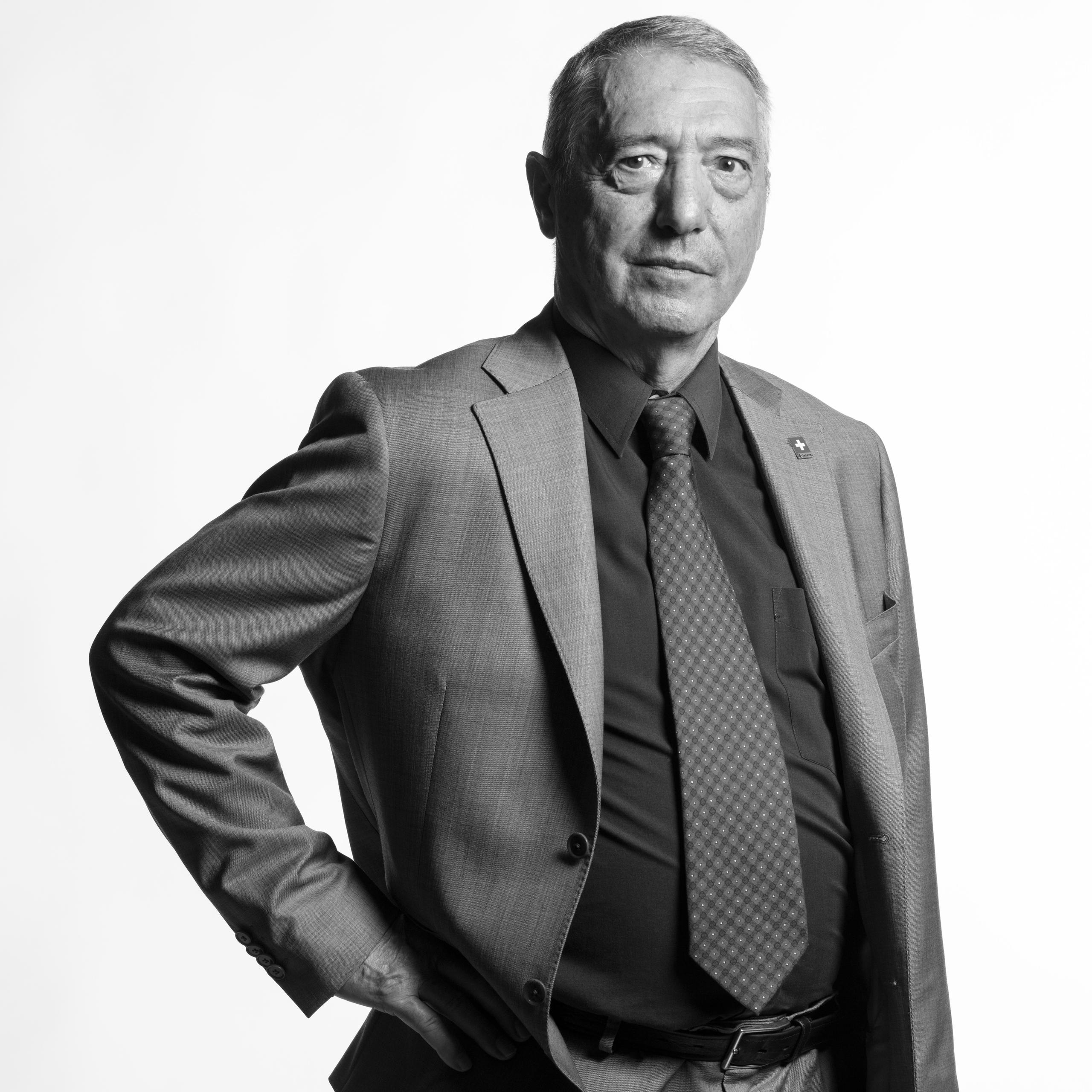
The southern canton of Ticino – on the border with Italy – also stands out. A total of eight Swiss Abroad are running there on the Centre party’s international list. They include the oldest and the youngest expatriate candidates.
Gianfranco Definti has been living in Milan since 1969. At 82, he still works as an insurance broker and serves on the board of the Organisation of the Swiss Abroad. “You have to be active to stay young,” he tells SWI swissinfo.ch. Definti himself founded the Centre’s international list in Ticino eight years ago with the aim of boosting the party in the Italian-speaking canton. “As a Swiss Abroad, it is very hard to get elected,” the Swiss-Italian dual citizen says. Only Tim Guldimann, of the Social Democratic Party, has managed this so far. Definti has close ties to Switzerland, and usually spends his weekends in Ticino.
The youngest expatriate candidate is 21-year-old student Bianca Mascetti from Como. She did not respond when contacted by SWI swissinfo.ch.
Longest journey
If elected, Emmanuel Bichet of Fribourg would have the longest journey to the House of Representatives – over 20 hours by plane. Since early 2022, the diplomat has been living with his family in the Australian capital Canberra, where he works part-time at the Swiss embassy as a special envoy for the Pacific region. He devotes the rest of his working time to a start-up that he founded in Switzerland this year.
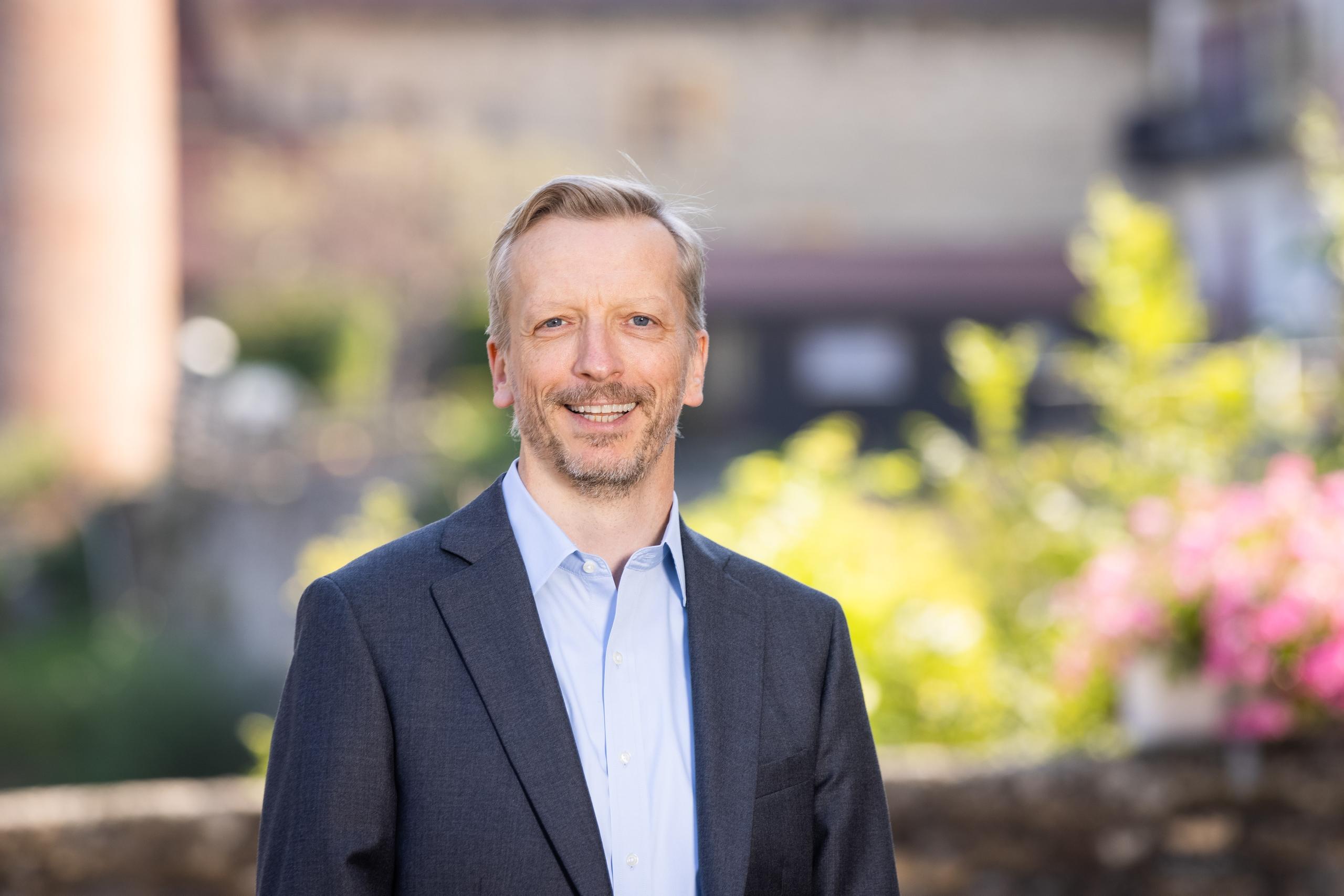
Bichet is running on the list of the centre-left Christian Social Party Switzerland. This French-speaking Swiss party, which has already won a seat in parliament, defends the interests of those who “cannot invest money in defending their individual interests.” Bichet advocates the introduction of a Swiss minimum wage of CHF23 ($25.6) per hour, for instance.
Born in France to a French father and a Swiss mother, Bichet studied law in Paris before coming to Switzerland. There he completed a traineeship with the Federal Department of Foreign Affairs. Over the past 25 years, he has worked for the Swiss diplomatic service in various capacities, with stints in Jakarta, New York, at the United Nations in Geneva and the European Union headquarters in Brussels.
If elected to the House of Representatives he would not commute, however. “We plan to return to Switzerland in summer 2024,” the 51-year-old says. “So I would only have to make the long haul from Australia for two sessions at most.” Bichet is no fan of air travel and has therefore been systematically offsetting his CO2 emissions for years. “It would be better not to fly at all, of course.” But this is currently not an option for him for family reasons.
Bichet believes he has a chance of being elected. As a member of parliament, he says h would stand up for the interests of the Swiss Abroad and of those struggling economically in Switzerland.

More
Argentina and Switzerland: two national elections on one day
A pensioner in Colombia
Only 30% of the 43 candidates from abroad are women – whereby the proportion of women across all lists is higher (40.75%). Among the expatriate women running for office, Leonor Chevalier would have the longest journey to the Federal Parliament. Her home is in Medellín, Colombia, some 9,000 kilometres from Bern as the crow flies. She is running on the international list of the Swiss People’s Party in Geneva.
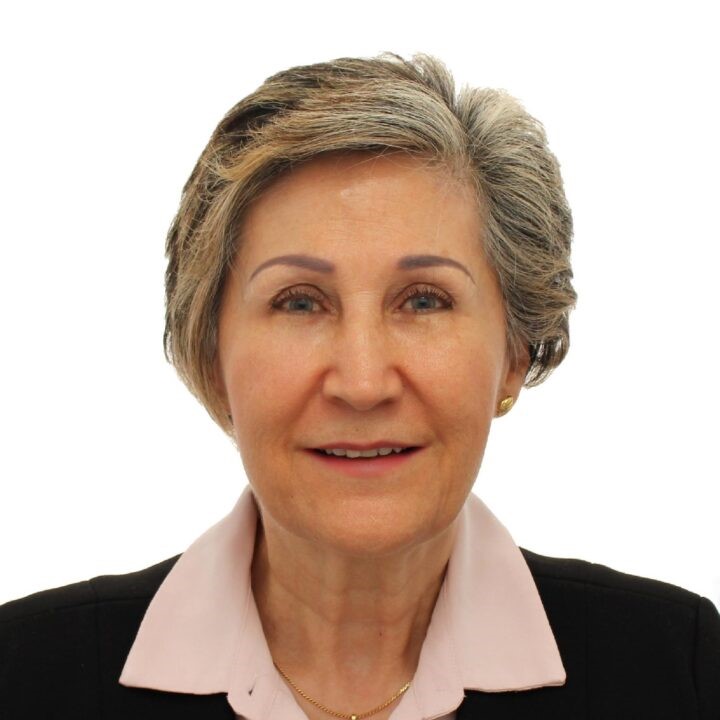
If elected, she would travel back and forth from Medellín to Bern four times a year. “I’m in Switzerland twice a year anyway, so that would be twice more,” says the 71-year-old private teacher. Chevalier was born in Colombia and came to Switzerland to study when she was 16. “I immediately fell in love with Switzerland.” She married here and has three now grown-up children. She spent a total of 32 years in French-speaking Switzerland.
In 2001, she returned to Colombia – initially for just a year – and ended up staying. “As a pensioner, I could no longer afford to live in Switzerland,” she explains. Nevertheless, she wants to continue working for Switzerland and the Swiss Abroad.
In so doing, she is particularly concerned with the preservation of Swiss culture. “I am not against migration, but uncontrolled immigration is not good for any country,” says the right-wing candidate. She also wants to help find solutions to the perennial issues facing Swiss expatriates, namely restricted access to bank accounts in Switzerland, e-voting and the delivery of voting documents, and Swiss schools abroad.
Major party missing
Not all parties are fielding candidates from abroad. The Centre Switzerland and the Liberal Green Party are clearly the most international parties in the 2023 election campaign, with 28 candidates between them. The People’s Party with five candidates, the Green Party with three candidates and the Social Democratic Party with one candidate are also well represented in this respect.
It is noticeable that Switzerland’s third-largest party, the centre-right Radical-Liberals, has no expatriate candidates. This was a conscious decision, as the party’s international section told SWI swissinfo.ch. The Radical-Liberal Party promotes instead indirect representation of the Swiss Abroad in parliament.
Edited by Balz Rigendinger. Translated from German by Julia Bassam/ds

In compliance with the JTI standards
More: SWI swissinfo.ch certified by the Journalism Trust Initiative
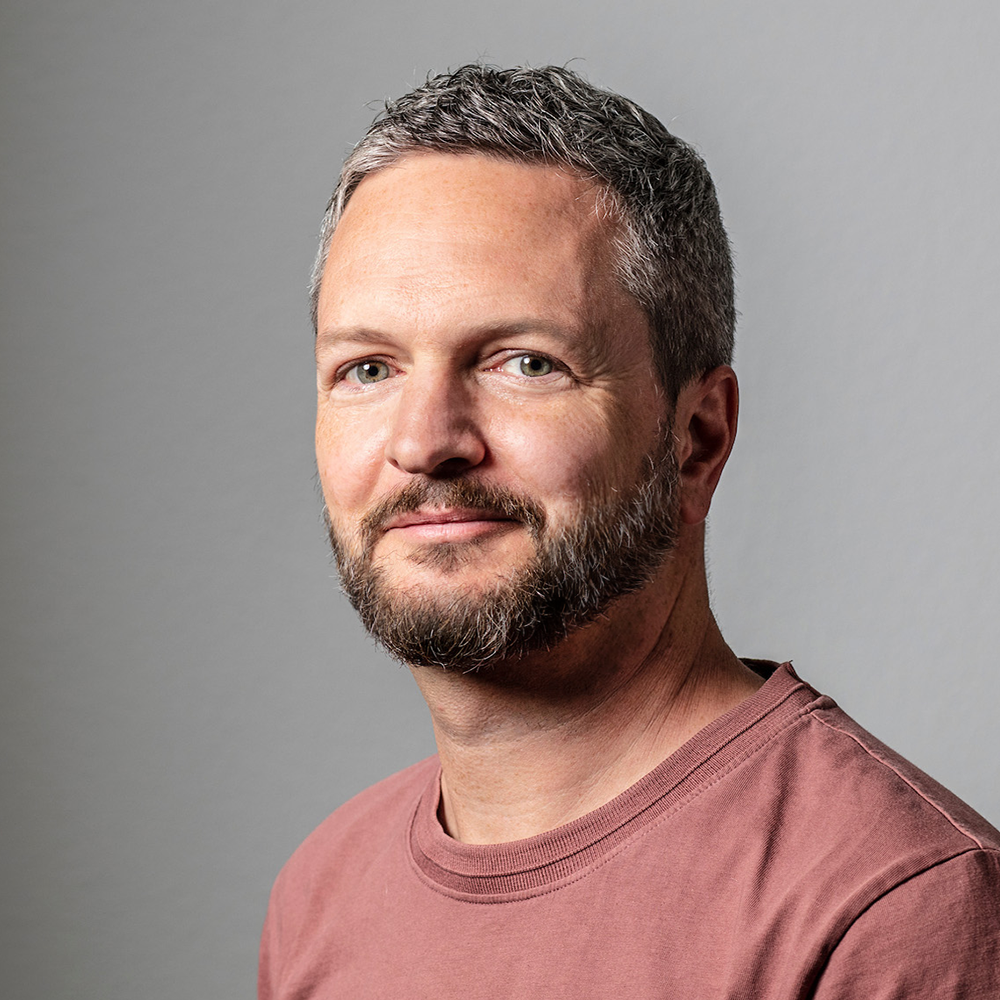
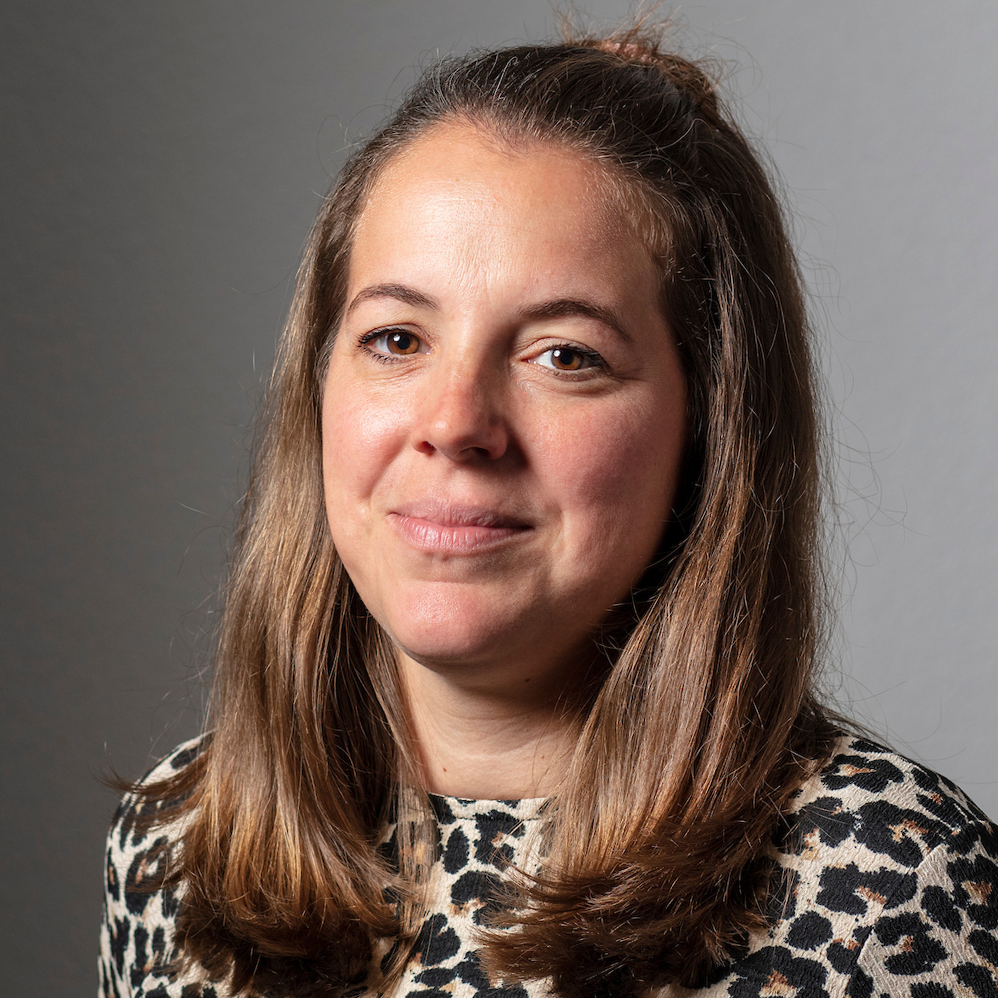


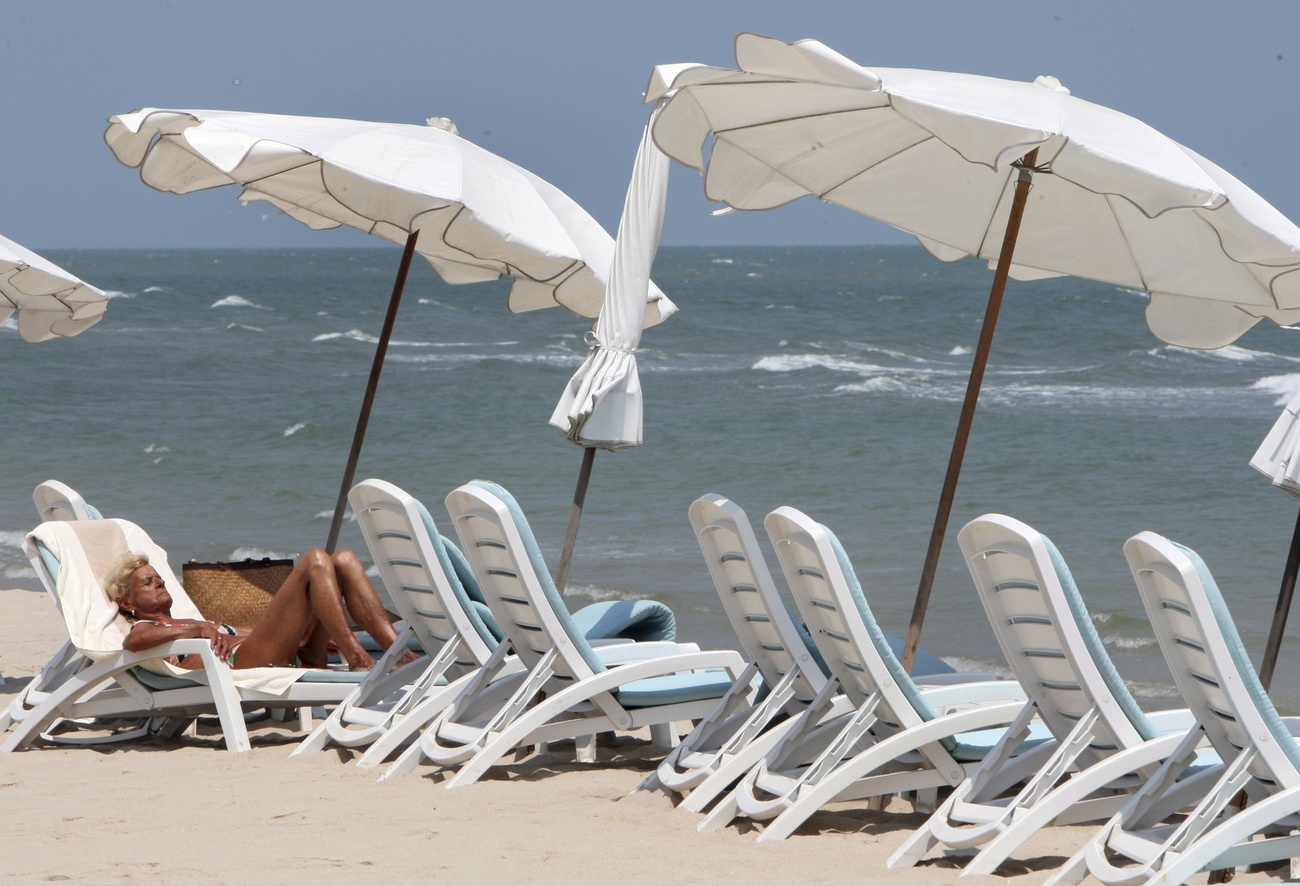

You can find an overview of ongoing debates with our journalists here. Please join us!
If you want to start a conversation about a topic raised in this article or want to report factual errors, email us at english@swissinfo.ch.